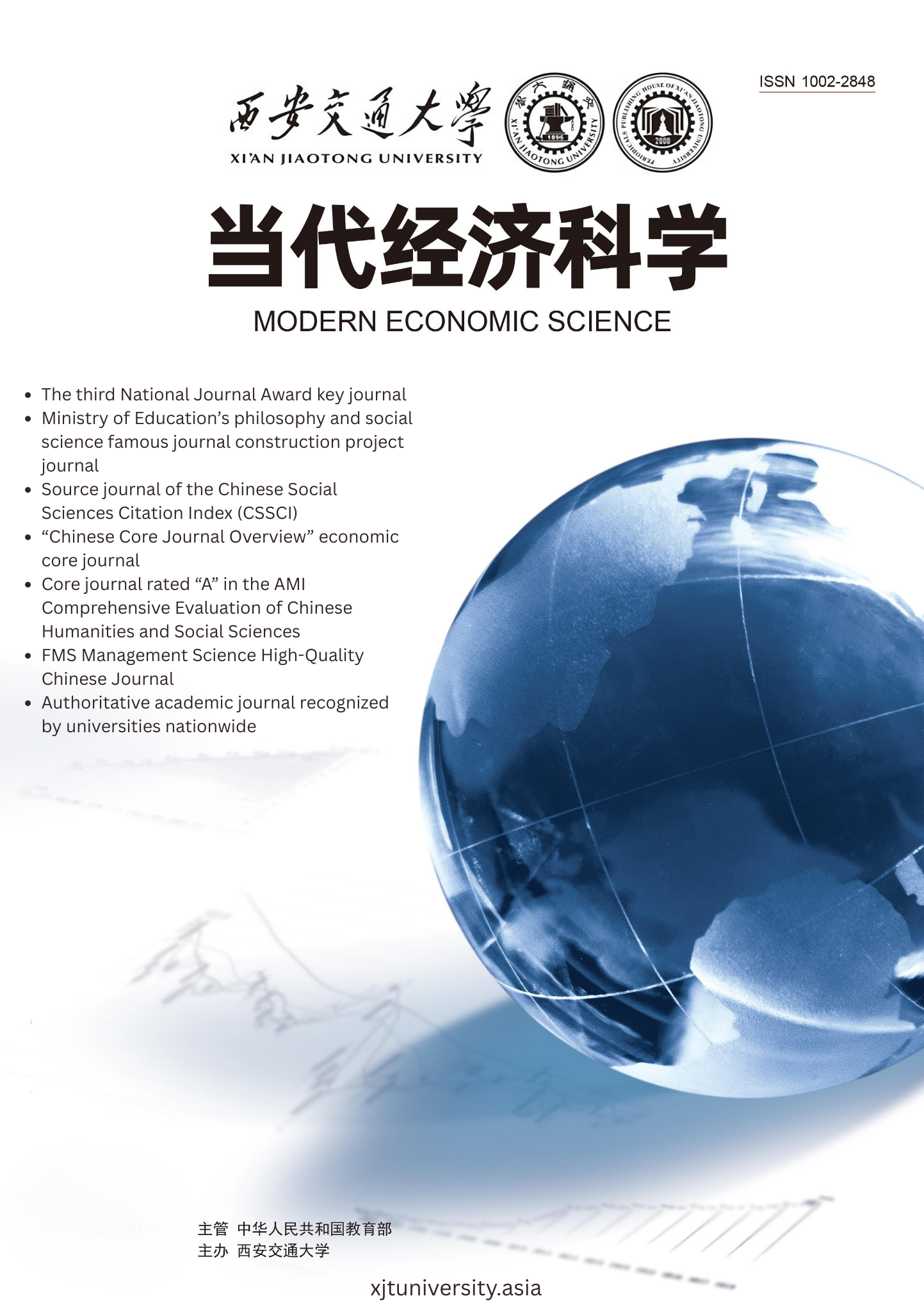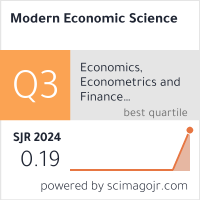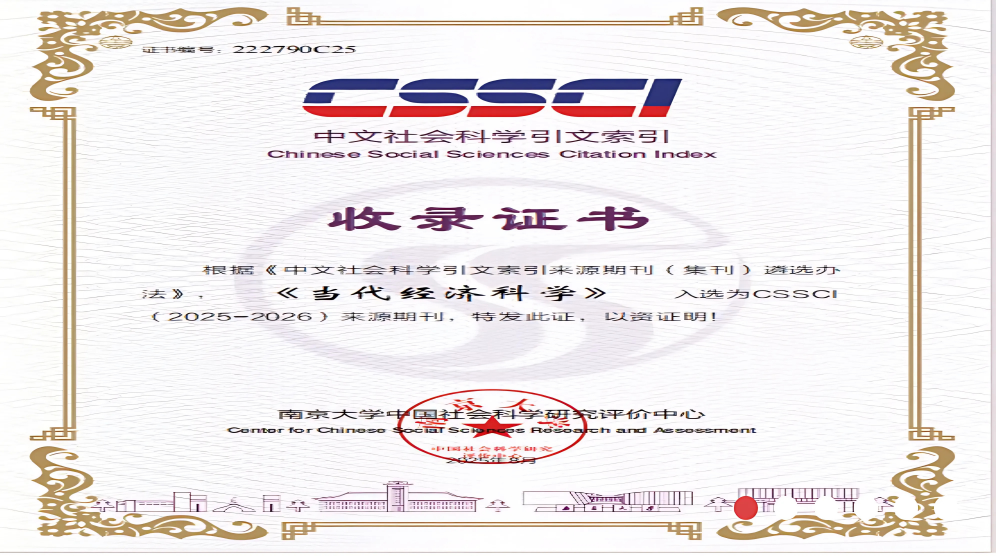Market Effects of Policy Uncertainty: A Mispricing-Based Perspective
DOI:
https://doi.org/10.20069/4583s391Keywords:
policy uncertainty, mispricing, investor sentiment, market value managementAbstract
Clarifying the relationship between the government and the market is fundamental and critically important in modern economic and social development. Governments regulate economic activities through policy formulation and implementation. These policy adjustments directly impact asset prices and, more importantly, introduce uncertainty. The Chinese stock market, notably sensitive to policy changes, provides an ideal environment for exploring the government-market relationship. Policy uncertainty impacts stock prices through two main components: intrinsic value and mispricing deviations from intrinsic value. Existing literature primarily focuses on how policy uncertainty affects factors determining the intrinsic value of stocks, such as business operations, rather than its impact on stock mispricing. Stock mispricing is crucial for resource allocation efficiency, making it valuable to explore how policy uncertainty affects stock mispricing.
This paper empirically analyzes the impact of policy uncertainty on stock mispricing using quarterly data from A-share listed companies in Shanghai and Shenzhen from 2003 to 2020. The results indicate that rising policy uncertainty generally corrects stock mispricing, with significant asymmetry between over-valued and under-valued samples. Rising policy uncertainty reduces the mispricing of over-valued stocks while increasing the mispricing of under-valued stocks. Mechanism tests reveal that investor sentiment and market value management are the primary mechanisms through which policy uncertainty affects stock mispricing, with investor sentiment being dominant in both over-valued and under-valued samples. Heterogeneity analysis shows that policy uncertainty affects stock mispricing mainly after 2007, particularly in private and smaller firms. Internal policy uncertainty in monetary and fiscal categories increases mispricing of over-valued stocks and decreases mispricing of under-valued stocks, whereas external policy uncertainty in trade, exchange rate, and capital account categories has the opposite effect.
This paper contributes to the existing literature in three ways: first, it expands research on the market effects of policy uncertainty by examining its impact on asset prices from the perspective of stock mispricing. Second, unlike existing literature that focuses on the generation mechanism of stock mispricing from the perspectives of market investor behavior, delisting systems, information disclosure, short-selling restrictions, and financial technology, this paper systematically examines the impact of policy uncertainty on stock mispricing, enriching the research literature on factors affecting stock mispricing. Third, it reveals the intrinsic mechanisms by which policy uncertainty affects stock mispricing based on two perspectives: the passive impact of investor sentiment and the active adjustment of market value management, deepening the linkage between macroeconomic policies and micro corporate behavior.
The findings of this paper have direct policy implications: First, recognizing the importance of expectation management in financial regulation, guiding investors’ expectations of future policy changes, reducing potential policy change uncertainty, and ensuring effective policy implementation by forming stable expectations. Second, scientifically formulating the timing of policy adjustments by choosing periods when market investor sentiment is relatively high to cool down optimism and avoiding periods of low investor sentiment to reduce the negative impact of policy changes on the stock market.
Downloads
References
[1] 陈国进, 张润泽, 赵向琴. 经济政策不确定性与股票风险特征 [J]. 管理科学学报, 2018(4):1-27.
[2] Rhodes-Kropf M., Robinson D. T., Viswanathan S. Valuation waves and merger activity: the empirical evidence [J]. Journal of Financial Economics, 2005, 77(3):561-603.
[3] 陆蓉, 何婧, 崔晓蕾. 资本市场错误定价与产业结构调整 [J]. 经济研究, 2017(11):104-118.
[4] 贾倩, 孔祥, 孙铮. 政策不确定性与企业投资行为: 基于省级地方官员变更的实证检验 [J]. 财经研究, 2013(2):81-91.
[5] 宫汝凯, 徐悦星, 王大中. 经济政策不确定性与企业杠杆率 [J]. 金融研究, 2019(10):59-78.
[6] 王红建, 李青原, 邢斐. 经济政策不确定性、现金持有水平及其市场价值 [J]. 金融研究, 2014(9):53-68.
[7] 林建浩, 陈良源, 田磊. 货币政策不确定性是中国股票市场的定价因子吗? [J]. 经济学(季刊), 2021(4):1275-1300.
[8] Bernal O., Gnabo J. Y., Guilmin G. Economic policy uncertainty and risk spillovers in the Eurozone [J]. Journal of International Money & Finance, 2016, 65:24-45.
[9] Tsai I. C. The source of global stock market risk: a viewpoint of economic policy uncertainty [J]. Economic Modelling, 2017, 60:122-131.
[10] 杨子晖, 陈里璇, 陈雨恬. 经济政策不确定性与系统性金融风险的跨市场传染: 基于非线性网络关联的研究 [J]. 经济研究, 2020(1):65-81.
[11] 王晓宇, 杨云红. 经济政策不确定性如何影响股价同步性: 基于有限关注视角 [J]. 经济科学, 2021(5):99-113.
[12] 朱宏泉, 刘晓倩, 李亚静. 经济政策不确定性对A股IPO抑价的影响研究 [J]. 系统工程理论与实践, 2021(5):1197-1210.
[13] De Long J. B., Shleifer A., Summers L. H., et al. Noise trader risk in financial markets [J]. Journal of Political Economy, 1990, 98(4):703-738.
[14] Beer F., Hamdi B., Zouaoui M. Investors’ sentiment and accruals anomaly: European evidence [J]. Journal of Applied Accounting Research, 2018, 19(4):500-517.
[15] 林祺. 资本市场效率与资产增长异象: 源于“错误定价”还是“风险” [J]. 财贸经济, 2016(2):55-70.
[16] 李远鹏, 牛建军. 退市监管与应计异象 [J]. 管理世界, 2007(5):125-132.
[17] 李科, 徐龙炳, 朱伟骅. 卖空限制与股票错误定价: 融资融券制度的证据 [J]. 经济研究, 2014(10):165-178.
[18] 赖晓冰, 岳书敬. 金融科技发展如何影响股票错误定价? [J]. 经济学报, 2023(1):85-124.
[19] 李旎, 蔡贵龙, 郑国坚. 企业成长的螺旋: 市值管理与企业投资决策 [J]. 会计研究, 2018(10):66-72.
[20] Berger P. G., Ofek E. Diversification’s effect on firm value [J]. Journal of Financial Economics, 1995, 37(1):39-65.
[21] 游家兴, 吴静. 沉默的螺旋: 媒体情绪与资产误定价 [J]. 经济研究, 2012(7):141-152.
[22] Julio B., Yook Y. Political uncertainty and corporate investment cycles [J]. Journal of Finance, 2012, 67(1):45-83.
[23] Baker S. R., Bloom N., Davis S. J. Measuring economic policy uncertainty [J]. Quarterly Journal of Economics, 2016, 131(4):1593-1636.
[24] Gulen H., Ion M. Policy uncertainty and corporate investment [J]. The Review of Financial Studies, 2016, 29(3):523-564.
[25] Huang Y., Luk P. Measuring economic policy uncertainty in China [J]. China Economic Review, 2019, 59(2):1-18.
[26] 易志高, 茅宁. 中国股市投资者情绪测量研究: CICSI的构建 [J]. 金融研究, 2009(11):174-184.
[27] 赵汝为, 熊熊, 沈德华. 投资者情绪与股价崩盘风险: 来自中国市场的经验证据 [J]. 管理评论, 2019(3):50-60.
[28] 王霞, 郑挺国. 基于实时信息流的中国宏观经济不确定性测度 [J]. 经济研究, 2020(10):55-71.
[29] 李力, 宫蕾, 王博. 经济政策不确定性冲击与股市波动率: 来自宏观与微观两个层面的经验证据 [J]. 金融学季刊, 2018(4):94-126.
[30] Acemoglu D., Johnson S., Robinson J. A. Reversal of fortune: geography and institutions in the making of the modern world income distribution [J]. Quarterly Journal of Economics, 2002, 107(4):1231-1294.
Downloads
Published
Issue
Section
License
Copyright (c) 2024 Editorial Board of Modern Economic Science

This work is licensed under a Creative Commons Attribution-NonCommercial 4.0 International License.













